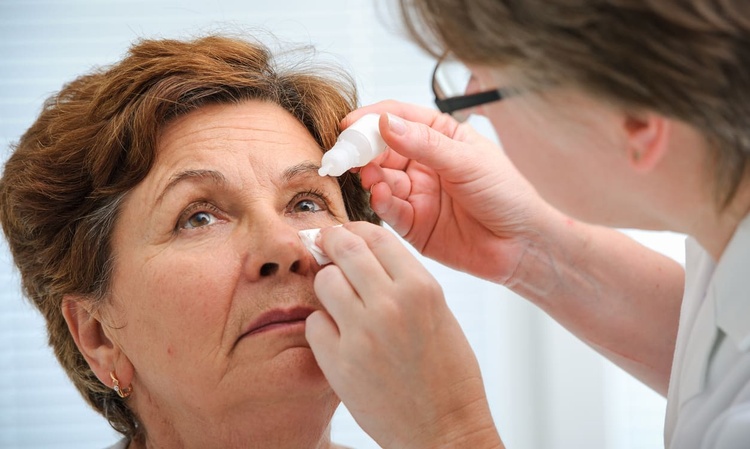Nursing Careers Abroad in 2026: Opportunities, Licensing, and Application Tips
The global healthcare landscape is evolving rapidly, creating unprecedented opportunities for nursing professionals seeking international careers. As healthcare systems worldwide face aging populations and staff shortages, qualified nurses are finding themselves in high demand across borders. This comprehensive guide explores the expanding nursing job market abroad in 2026, covering essential licensing requirements, application processes, and preparation strategies for success.

The nursing profession is witnessing a significant transformation on the international stage. With healthcare systems across the globe facing increased pressure from aging demographics, technological advancements, and evolving care models, qualified nursing professionals are becoming highly sought after beyond their home countries. For those considering a nursing career abroad in 2026, understanding the opportunities, navigating licensing requirements, and mastering the application process will be essential to success in this competitive yet rewarding field.
Why Global Nursing Demand Is Rising in 2026
The worldwide demand for qualified nursing professionals continues to accelerate due to several converging factors. Aging populations in developed nations are creating unprecedented healthcare needs, with countries like Japan, Germany, and Italy facing particularly acute shortages. Simultaneously, emerging economies are expanding their healthcare infrastructure, requiring trained professionals to staff new facilities. The COVID-19 pandemic’s lingering effects have also contributed to burnout and early retirements among existing nursing staff, creating additional vacancies.
Technological advancements in healthcare delivery are another driving factor. As medical systems adopt more sophisticated treatment approaches, the need for specialized nursing skills has grown accordingly. Remote patient monitoring, telehealth nursing, and specialized care coordination are emerging as high-demand skill areas that transcend national boundaries. Additionally, many countries are recognizing the value of diverse healthcare teams that can provide culturally competent care to increasingly multicultural populations.
Top Countries Hiring Foreign Nurses
Several nations stand out as particularly active recruiters of international nursing talent in 2026. The United Kingdom continues its targeted recruitment campaigns following workforce gaps created by Brexit and pandemic-related healthcare pressures. The National Health Service has streamlined its international hiring processes, particularly for critical care and specialized nursing roles.
Australia and New Zealand maintain robust recruitment programs, especially for rural and remote healthcare settings where staffing challenges persist. Both countries offer attractive work-life balance and competitive compensation packages. Canada’s Provincial Nominee Programs provide pathways to permanent residency for qualified healthcare workers, with Quebec, British Columbia, and Ontario being particularly active recruiters.
Germany and Nordic countries have addressed language barriers by offering sponsored language training programs alongside employment opportunities. The United Arab Emirates, Saudi Arabia, and Singapore continue offering tax advantages and comprehensive benefits packages to attract experienced nursing professionals to their expanding healthcare systems. Each destination presents unique advantages regarding compensation, work conditions, and pathways to permanent residency or citizenship.
Licensing and Credential Requirements Explained
Navigating international licensing requirements remains one of the most challenging aspects of pursuing a nursing career abroad. Most destination countries require verification of your nursing education, professional credentials, and work experience through processes that can take several months to complete. Organizations like the Commission on Graduates of Foreign Nursing Schools (CGFNS) often serve as verification authorities for multiple countries.
Language proficiency requirements vary significantly by destination. English-speaking countries typically require passing scores on tests like the IELTS or OET (Occupational English Test), with minimum scores ranging from 6.5 to 7.5 depending on the country and specific nursing board. Non-English speaking destinations may require demonstrated proficiency at the B1 or B2 level on the Common European Framework of Reference.
Credential recognition processes have become more standardized in 2026, with many countries adopting digital verification systems that accelerate the process. However, nurses should still anticipate completing bridging programs or competency assessments that demonstrate familiarity with local healthcare protocols, documentation systems, and regulatory frameworks. These requirements ensure that international nurses can integrate seamlessly into their new healthcare environments.
Visa and Application Process Step-by-Step
The visa application process varies by destination country but generally follows a similar framework. First, secure a job offer from an approved healthcare employer who can sponsor your work visa. Many countries now use points-based immigration systems that favor healthcare professionals, particularly those with specialized skills or willingness to work in underserved areas.
Prepare and submit required documentation, which typically includes: - Verified nursing credentials and license - Language proficiency test results - Criminal background check - Medical examination results - Proof of relevant work experience - Job offer letter from an approved employer
Application processing times have improved in many countries through digital systems but still range from 3-6 months on average. Most countries now offer specialized healthcare worker visa categories with expedited processing. Many also provide pathways to permanent residency after 2-5 years of employment, making the initial visa process the first step toward potential citizenship.
Successful applicants should prepare for relocation costs, which some employers may partially cover. Many countries now require proof of financial means to support yourself initially, typically equivalent to 3-6 months of living expenses. Understanding these requirements early in the process helps avoid delays and complications.
How to Prepare for a Successful Nursing Career Overseas
Preparation for an international nursing career should begin 12-18 months before your intended relocation date. Start by researching target countries and their specific healthcare systems, nursing practices, and cultural contexts. Join professional nursing networks with international members who can provide firsthand insights about working conditions and integration challenges.
Develop specialized skills that align with global healthcare trends, such as gerontological nursing, critical care, mental health nursing, or digital health coordination. These specializations can significantly enhance your employability and negotiating position. Additionally, begin language acquisition early if moving to a non-English speaking country, as fluency development takes consistent effort over time.
Financial preparation is equally important. Establish an emergency fund covering at least six months of expenses to manage potential gaps between arrival and first paycheck. Research banking options that facilitate international transfers with minimal fees, and understand the tax implications of working abroad, including any bilateral tax agreements between your home and destination countries.
Professional development should continue throughout your preparation period. Pursue certifications recognized internationally, such as Advanced Cardiac Life Support (ACLS), trauma nursing, or infection control credentials. These demonstrate your commitment to maintaining high practice standards across borders and can provide competitive advantages in the application process.
This article is for informational purposes only and should not be considered medical advice. Please consult a qualified healthcare professional for personalized guidance and treatment.




